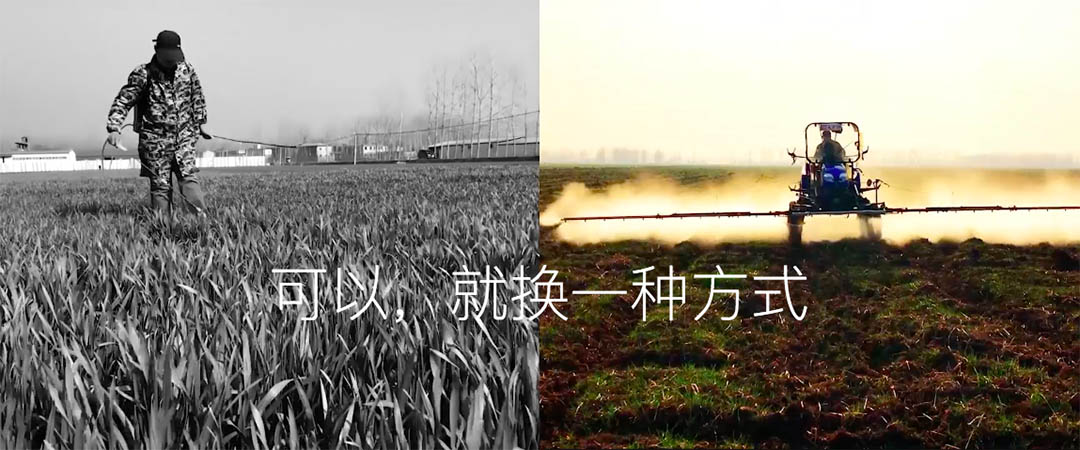NongFenQi (农分期), an agricultural service company, has completed a several billion yuan C round financing. This round of financing is led by Yi Capital, followed by existing investors such as Singapore’s Innoven Capital, BAI (Bertelsmann Asia Investments), YongHua Capital, ShunWei Capital, Source Code Capital, Zhen Fund, etc.
NongFenQi said that the capital will be for the continuation of tapping the market potential of agricultural sector in addition to the continuous expansion of NongFenQi and to strengthen its advantage over agricultural channels, besides focusing on the technical and technological applications of agricultural machinery and agricultural investment lines.
Trillions of agricultural service markets
In February, the Chinese government put forward the Rural Revitalization Strategy for developing the rural economy. More and more people were concerned about the huge rural market in China.
Firstly, with regards to the scale of the agricultural production market, the data from the National Bureau of Statistics showed that in 2016, the total income from the main business of agriculture machinery enterprises in China was over 450 billion yuan (approximately US$71.7 billion).
In addition, the market data also showed that the value of agricultural production materials such as seeds, fertilizers, pesticides, etc., is over 1 trillion yuan (approximately US$159 billion). The market for agricultural machinery and agricultural products was nearly 2 trillion (approximately US$319 billion) in value. Moreover, the output value of grain and agricultural products was more than 5 trillion yuan (approximately US$ 797 billion) per year.
Secondly, with the rise of the new type of agricultural management, the scale planting of land not only gave birth to a large number of financial needs, but also those needs needed to be solved urgently.
In rural areas, the finance the farmers and enterprises require are not met. The China’s “Three Rural” Internet Financial Development Report 2016 by The Academy of Social Science indicates that the funding required in that aspect in Chinese rural areas is an estimated 3.05 trillion yuan (approximately US$ 486 billion).
However, the “blue ocean” of rural finance is hard to overcome. The lack of credit data is a barrier for traditional financial instruments.
NongFenQi has gained the largest financing in Internet agricultural service in recent years. According to ZHOU Jian, founder and CEO of NongFenQi, NongFenQi has nearly 500 thousand growers. Last year, it provided nearly 2 billion yuan (approximately US$ 319 million) of financial services and has profited monthly.
NongFenQi was formally involved in the field of agriculture in 2013, serving agricultural scale production groups and providing agricultural production operators with one-stop services based on financial, production, grain trade and agricultural technology support. The founder believes its biggest feature is its self-management.
Target market: Aiming at agricultural scale production

ZHOU Jian introduced that NongFenQi’s main user group is a new type of agricultural management subject to scale production, with an average of about 270 mu (18 hectares) of land. The demand for loans in each quarter is about 50 thousand. The main demand is to purchase agricultural machinery, chemical fertilizer, land and other agricultural production tools.
The coverage is mainly the major agricultural provinces and big counties in the eastern plains, and the crops that can be planted on scale are mainly selected on the crop species because the planting mode is relatively mature, besides the high possibility of scale and relatively stable price fluctuation.
ZHOU Jian believes that with the transformation of the agricultural production mode, scale is the trend of Chinese agriculture. In the early stage of production, the input for production tools will increase, and the whole industry chain will expand. As a result, NongFenQi initially focused on the productive financial services that could provide greater support to agricultural production and gradually permeated the whole agricultural chain.
NongFenQi performs bulk purchase from large agricultural production enterprises from the upper echelon, followed by direct delivery to the site of large households from the manufacturer. Peasant households can purchase self-made commodities such as pesticides, fertilizers, etc. interest free, and it is likely to be cheaper than traditional channels. In this case, the main profit from this is for NongFenQi is to earn the price difference.
Constructing the “rural Zhima Credit”
Agriculture is a relatively closed industry with low Internet penetration. Most of the agricultural operators are not covered by the bank and do not have credit history.
The NongFenQi team set up a credit system of agricultural planting scenarios base on the information provided by farmers on the scene, including personal, family and planting management information. These credit assessments can help NongFenQi judge the financial business risks of farmers, which then provide an important reference for whether farmers can obtain financial services and agricultural supplies.
One of the key points of NongFenQi’s credit system is being offline. The self-service team collects information locally, then manually enters it to conducts standardized evaluation through the background credit information system.
